



 HARLES DARWIN is back in the news. As I write, his image gazes out from the cover of Newsweek, which duly reports on the controversy over "intelligent design," an old, religiouslybased challenge to Darwinian theory dressed up in (slightly) new rhetorical clothing. (See Essay io below for some of the classic arguments for and against "intelligent design" theory). A couple of months ago, in its issue for August zz & 29, zoos, The New Republic devoted its cover story to "Unintelligent Design," a long, blistering attack on the movement by Jerry Coyne, a biologist at the University of Chicago.
HARLES DARWIN is back in the news. As I write, his image gazes out from the cover of Newsweek, which duly reports on the controversy over "intelligent design," an old, religiouslybased challenge to Darwinian theory dressed up in (slightly) new rhetorical clothing. (See Essay io below for some of the classic arguments for and against "intelligent design" theory). A couple of months ago, in its issue for August zz & 29, zoos, The New Republic devoted its cover story to "Unintelligent Design," a long, blistering attack on the movement by Jerry Coyne, a biologist at the University of Chicago.
In my view, Coyne leaves the claims of the IDers in tatters, but that is not the end of the story. What's it all about? Are we reliving the Scopes Monkey Trial, with the forces of darkness, superstition, and dogmatic religion arrayed on one side against the champions of enlightenment and truth lined up on the other?
That's what many of my friends say (yours, too, probably, if you went to a good school).
In fact, there is a lot of fog, not to say bad faith, on both sides of the debate-or whatever we should call the current, selfrighteous exchange of name-calling.
There is also an extraordinary amount of dogmatism-as much, interestingly, on the side of the Darwinians as on the side of their "fundamentalist" opponents. I remember leaving a party a few years ago with a friend, an eminent biologist, whom I knew admired some of David Stove's other writings. I was in the midst of reading Darwinian Fairytales for the first time. At the coat check, I retrieved the book and gave it to him to leaf through. I looked on with concern as the smile on his face faded and a frown appeared. "But this is terrible!" he said, turning the pages, "this is awful!"
Since then I have noted with amusement how sensitive to criticism the Darwinian faithful are. Any hint of a shadow of dissent and they rush for the garlic, the wooden stake, and a signed copy of On the Origin of Species. I think I understand the psychology of the response. They are terrified lest acknowledging the strength of this or that criticism start them down the road toward creationism and teaching the Book of Genesis in Biology Ioi.
Where does the truth lie? Are the main doctrines of Darwinian teaching as impregnable and well established as proponents claim? One good place to start for an answer is with this book, Darwinian Fairytales. It was the last work of the Australian philosopher David Stove. By the time of his death in 1994, Stove had earned a distinguished place for himself in the pantheon of intellectual demolition experts. His targets, one admirer wrote, are many: "the Enlightenment, feminism, Freud, the idea of progress, leftish views of all kinds, Marx,... metaphysics, modern architecture and art, philosophical idealism, [Karl] Popper, religion, semiotics, Stravinsky and Sweden.... Also, anything beginning with `soc' (even Socrates got a serve or two)."
High among Stove's antipathies was irrationality in the philosophy of science, which he detected not only in overt irrationalists such as Paul "Anything Goes" Feyerabend but also in more seemingly respectable figures such as Thomas "Mr. Paradigm Shift" Kuhn. If you believe (as your teachers doubtless told you) that Kuhn or Karl Popper was a friend of honest scientific inquiry, read Stove's book Scientific Irrationalism: Origins of a Postmodern Cult (Transaction): I guarantee that it will change your mind.
A century ago, William James wrote a book called Varieties of Religious Experience. Had Stove lived long enough, he might have written something called Varieties of Irrational Experience. His hilarious but disturbing essay "What is Wrong with Our Thoughts?," reprinted in The Plato Cult and Other Philosophical Follies (Blackwell), would make a splendid introduction to such a work.
I want to pause to emphasize the hilarity. Stove was one of the greatest philosophical stylists of our, perhaps of any, time. That is a large claim, I know, but don't take my word for it: plunge on. You will see why one commentator wrote that reading David Stove is like watching Fred Astaire dance: the elegance, the seeming effortlessness, are breathtaking demonstrations of consummate artistry.
Stove's skeptical cast of mind (David Hume was his philosophical hero) naturally endeared him to the enemies of cant, the exposers of naked emperors, the puncturers of academic gas bags, poseurs, and charlatans.
How surprising, then, that David Stove should turn out to be an ardent anti-Darwinian. Wasn't Darwin on the side of all us Enlightened, no-nonsense, scientifically educated folk? If David Stove criticizes Darwin's theories, doesn't that make him an irrationalist, an ally of those school boards in Kansas that (or so we are told) want to replace science with scripture?
No, it doesn't. For one thing, Stove is not a creationist or proponent of "intelligent design"; indeed, he is careful to point out that he is "of no religion." Moreover, Stove admires Darwin greatly as a thinker, placing him at the top of his personal pantheon, along with Shakespeare, Purcell, Newton, and Hume. Stove furthermore believes that it is "overwhelmingly probable" that our species evolved from some other and that "natural selection is probably the cause which is principally responsible for the coming into existence of new species from old ones." Indeed, he believes that
the Darwinian explanation of evolution is a very good one as far as it goes, and it has turned out to go an extremely long way. Its explanatory power, even in T859 [when On the Origin of Species was published], was visibly very great, but it has turned out to be far greater than anyone then could have realized. And then, in the 1930s, the Darwinian theory received further accessions of explanatory strength through its confluence or synthesis with the new knowledge of genetics. And this "new synthesis," or "neoDarwinism," has been itself growing rapidly in explanatory power ever since.
At the same time, though, Stove maintains that "Darwinism says many things, especially about our species, which are too obviously false to be believed by any educated person; or at least by an educated person who retains any capacity at all for critical thought."

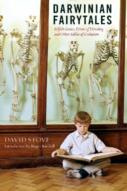

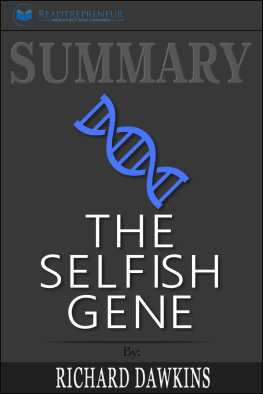
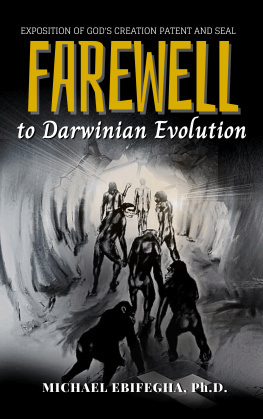
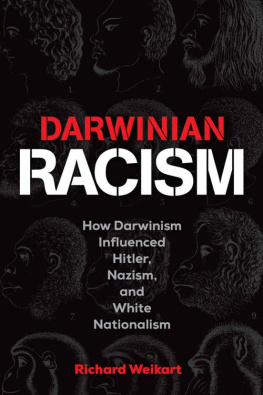
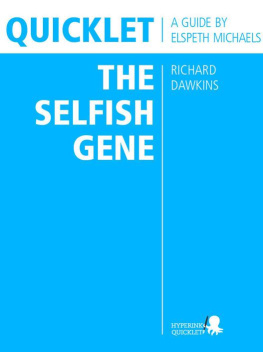

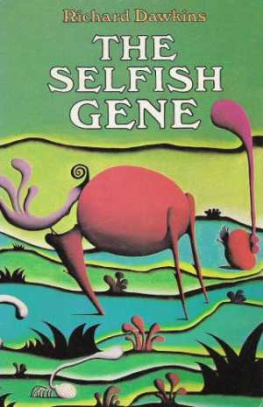






 HARLES DARWIN is back in the news. As I write, his image gazes out from the cover of Newsweek, which duly reports on the controversy over "intelligent design," an old, religiouslybased challenge to Darwinian theory dressed up in (slightly) new rhetorical clothing. (See Essay io below for some of the classic arguments for and against "intelligent design" theory). A couple of months ago, in its issue for August zz & 29, zoos, The New Republic devoted its cover story to "Unintelligent Design," a long, blistering attack on the movement by Jerry Coyne, a biologist at the University of Chicago.
HARLES DARWIN is back in the news. As I write, his image gazes out from the cover of Newsweek, which duly reports on the controversy over "intelligent design," an old, religiouslybased challenge to Darwinian theory dressed up in (slightly) new rhetorical clothing. (See Essay io below for some of the classic arguments for and against "intelligent design" theory). A couple of months ago, in its issue for August zz & 29, zoos, The New Republic devoted its cover story to "Unintelligent Design," a long, blistering attack on the movement by Jerry Coyne, a biologist at the University of Chicago.